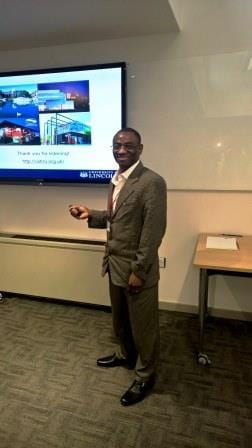Improvement science and research methods seminars given by Dr Joseph Akanuwe: Recruiting general practitioners (GPs) for Primary Care Research – challenges and strategies

The latest CaHRU Improvement Science and Research Methods seminar was given by Dr Joseph Akanuwe on 15 May 2024 on “Recruiting general practitioners (GPs) for Primary Care Research – challenges and strategies.” Dr Akanuwe is a postdoctoral research associate at Continue reading Improvement science and research methods seminars given by Dr Joseph Akanuwe: Recruiting general practitioners (GPs) for Primary Care Research – challenges and strategies



